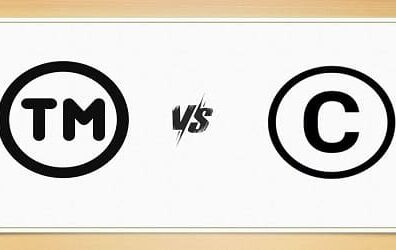WHAT IS A COMPANY AND ITS DIFFERENT TYPES

Introduction
The Companies Act, 2013 is a landmark legislation in India that governs the formation, regulation, and management of companies. It has brought significant changes to the corporate landscape, making it essential for businesses to understand the various types of companies it defines. In this article, we’ll delve into the different types of companies under the Companies Act, 2013, and what sets them apart.
“Company” means a company incorporated under Companies Act, 2013 or under any previous companies act. A company is a separate legal entity formed to carry out business activities. Being a separate legal entity, it can own properties in its own name. A company can enter into transactions in its own name, can sue and also be sued in its name.
Features of a Company
- Separate Legal Entity: A Company is a legal entity distinct from the individuals who form it. Unlike in other corporate forms, ownership can be kept distinguished from management. It is a legal entity that can own its funds and other assets.
- Limited Liability: A company’s liability is not the liability of its members. Members are only accountable for the amount they agreed to deposit when they subscribed for the company’s shares. The liabilities of the company are not the liabilities of its shareholders or directors.
- Perpetual Succession: People come and go, but the company lives on in forever. Perpetual Succession means that the company will continue to exist even if a member dies or ceases to exist. Changes in management have no effect on the company’s identity. The Company shall remain until it is wound up in line with the provisions of the applicable legislation.
- No Minimum Capital Requirement: The Ministry of Corporate Affairs has removed the restrictions on the minimum amount of Authorized or Paid Up Share Capital required to incorporate a Private Limited Company. The Promoters can now incorporate a company with the appropriate capital. This means that any money can be used to form a company.
- Easy Transferability: In this incorporated business model, you can quickly transfer your business, which is uncommon in the case of a sole proprietorship or a typical partnership. A Private Limited Company is easier to sell than any other business entity. Because the company’s value will be based on the business rather than the owner, it will be simple to sell the company.
- Raising Money: Raising capital as a small firm, sole proprietorship, or partnership can be challenging. You can easily attract investment in your Private Limited company by simply offering shares to anyone who wishes to join you in your enterprise. Companies enjoy strong credit worthiness with various financial institutions since they are supervised by specific laws and must comply with severe disclosure rules.
Important Definitions
Section 2 of Companies Act, 2013 contains the following definitions:
- Clause (20) “Company” means a company incorporated under this Act or under any previous company law.
- Clause (21) “Company Limited by Guarantee” means a company having the liability of its members limited by the memorandum to such amount as the members may respectively undertake to contribute to the assets of the company in the event of its being wound up.
- Clause (22) “Company Limited by Shares” means a company having the liability of its members limited by the memorandum to the amount, if any, unpaid on the shares respectively held by them.
- Clause (46) “Holding Company”, in relation to one or more other companies, means a company of which such companies are subsidiary companies.
For the purpose of this Clause, the expression “Company” includes any Body Corporate.
- Clause (71) “Public Company” means a company which –
(a) is not a private company;
(b) has a minimum paid-up share capital, as may be prescribed:
Provided that a company which is a subsidiary of a company, not being a private company, shall be deemed to be public company for the purposes of this Act even where such subsidiary company continues to be a private company in its articles.
- Clause (87) “Subsidiary Company” or “Subsidiary”, in relation to any other company (that is to say the holding company), means a company in which the holding company –
(i) controls the composition of the Board of Directors; or
(ii) exercises or controls more than one-half of the total voting power either at its own or together with one or more of its subsidiary companies:
Provided that such class or classes of holding companies as may be prescribed shall not have layers of subsidiaries beyond such numbers as may be prescribed.
For the purposes of this clause,—
(a) a company shall be deemed to be a subsidiary company of the holding company even if the control referred to in sub-clause (i) or sub-clause (ii) is of another subsidiary company of the holding company;
(b) the composition of a company’s Board of Directors shall be deemed to be controlled by another.
- Clause (62) “One-person Company”- The Companies Act, 2013 introduces a new type of entity to the existing list i.e. apart from forming a public or private limited company, the Act enables the formation of a new entity a ‘one-person company’ (OPC). An OPC means a company with only one person as its member.
- Clause (68) “Private Company” means a company having a minimum paid-up share capital as may be prescribed, and which by its articles, —
- restricts the right to transfer its shares;
- except in case of One Person Company, limits the number of its members to two hundred:
Provided that where two or more persons hold one or more shares in a company jointly, they
shall, for the purposes of this clause, be treated as a single member:
Provided further that—
- persons who are in the employment of the company; and
- persons who, having been formerly in the employment of the company, were members of the company while in that employment and have continued to be members after the employment ceased,
shall not be included in the number of members; and
(iii) prohibits any invitation to the public to subscribe for any securities of the company.
- Clause (85) “Small Company”- Rule 2(1)(t) of the Companies (Specification of definitions Details) Rules, 2014 with effect from September 15, 2022 has amended the definition of Small Company stating that for the purposes of sub-clause (i) and sub-clause (ii) of clause (85) of section 2 of the Act, The Act defines a small company as a company that is not a public company and has:
- A paid-up share capital equal to or below Rs.4 crore or such a higher amount specified not exceeding more than Rs.10 crores.
- A turnover equal to or below Rs.40 crore or such a higher amount specified not exceeding more than Rs.100 crore.
Provided that nothing in this clause shall apply to –
- a holding company or a subsidiary company;
- a company registered under section 8; or
- a company or body corporate governed by any special Act.
- Dormant company: A company formed and registered under this 2013 for a future project or to hold an asset or intellectual property and has no significant accounting transaction such a company or an inactive company may make an application to the Registrar for obtaining the status of a dormant company.
- Nidhi company: means a company which has been incorporated as a Nidhi with the object of cultivating the habit of thrift and savings amongst its members, receiving deposits from, and lending to, its members only, for their mutual benefit, and which complies with such rules as are prescribed by the Central Government for regulation of such class of companies. (Section 406).
- Clause (52) “Listed Company” means a company which has any of its securities listed on any
recognised stock exchange;
Provided that such class of companies, which have listed or intend to list such class of securities, as may be prescribed in consultation with the Securities and Exchange Board, shall not be considered as listed companies.
Companies not to be considered as listed companies [Rule 2A of the Companies (Specification of definitions details) Rules, 2014].
The following classes of companies shall not be considered as listed companies, namely:-
- Public companies which have not listed their equity shares on a recognized stock exchange but have listed their –
- non-convertible debt securities issued on private placement basis in terms of SEBI (Issue and Listing of Debt Securities) Regulations, 2008; or
- non-convertible redeemable preference shares issued on private placement basis in terms of SEBI (Issue and Listing of Non-Convertible Redeemable Preference Shares) Regulations, 2013; or
- both categories of (i) and (ii) above.
- Private companies which have listed their non-convertible debt securities on private placement basis on a recognized stock exchange in terms of SEBI (Issue and Listing of Debt Securities) Regulations, 2008.
- Public companies which have not listed their equity shares on a recognized stock exchange but whose equity shares are listed on a stock exchange in a jurisdiction as specified in section 23(3) of the Companies Act, 2013.
- Clause (45) “Government Company” means any company in which not less than fifty-one percent of the paid-up share capital is held by the Central Government, or by any State Government or Governments, or partly by the Central Government and partly by one or more State Governments, and includes a company which is a subsidiary company of such a Government company.
- Clause (42) “Foreign Company” means any company or body corporate incorporated outside India which,—
- has a place of business in India whether by itself or through an agent, physically or through electronic mode; and
- conducts any business activity in India in any other manner
Conclusion
Understanding the different types of companies under the Companies Act, 2013 is crucial for entrepreneurs, investors, and anyone involved in the corporate world. Each type of company has its unique features and requirements, and choosing the right one is vital for the success of any business venture. Whether you’re looking for limited liability, tax benefits, or ease of operations, the Act offers a suitable structure for your specific needs.
Remember that the choice of the company type should align with your business objectives, and it’s essential to consult with legal experts or professionals to ensure compliance with all applicable regulations. By making an informed decision, you can set your company on a path to growth and prosperity while adhering to the laws and regulations of the land.
Follow Us
Keep Yourself Updated By Following Us




